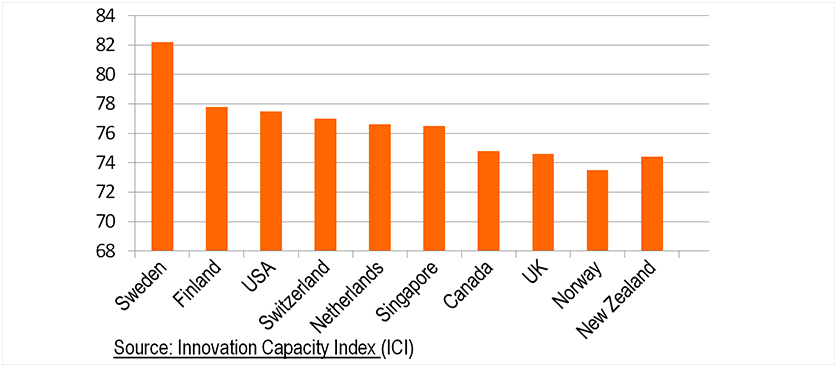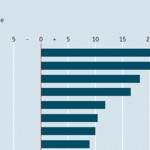The Innovation Capacity Index
A useful resource for managing innovation performance at national level is the The Innovation for Development Report. The report “provides a comprehensive look at the role of innovation in enhancing the development process” at national level. The first section of the report presents the Innovation Capacity Index, a methodological tool for measuring innovation at national level.
The Innovation Capacity Index (ICI):Definition: A global standard to be used across the world with governments, in all countries.
Purpose: To assess and to reflect the country ability to create an environment to support and encourage innovation.
Importance: The ICI is proposed as a policy tool in order to promote dialogue between countries regarding policies and institutions that foster an environment for enabling innovation.
Over 60 factors playing a major role for ICI:
- Human Capital endowment
- Regulatory and Legal framework
- Institutional environment
- Infrastructure for research and development
- Adoption and use of information and communication technologies
The relative importance of these factors varies, depending on the country development level and the political regime that policies are being implemented.
Practical perspective on ICI:ICI Rank 1: Sweden, the top performing country for 2009, serves as a benchmark for other countries through:
- The country’s excellent policy framework that turned the private sector into the main engine of innovation
- Open and transparent government
- Universal social protections
- High level of competitiveness and productivity
- The Innovation for Development Report
- Augusto López-Claros, Yasmina N. Mata, The Innovation Capacity Index: Factors, Policies and Institutions Driving Country Innovation

Tags: Economic performance, ICI, Innovation, Performance Measurement





